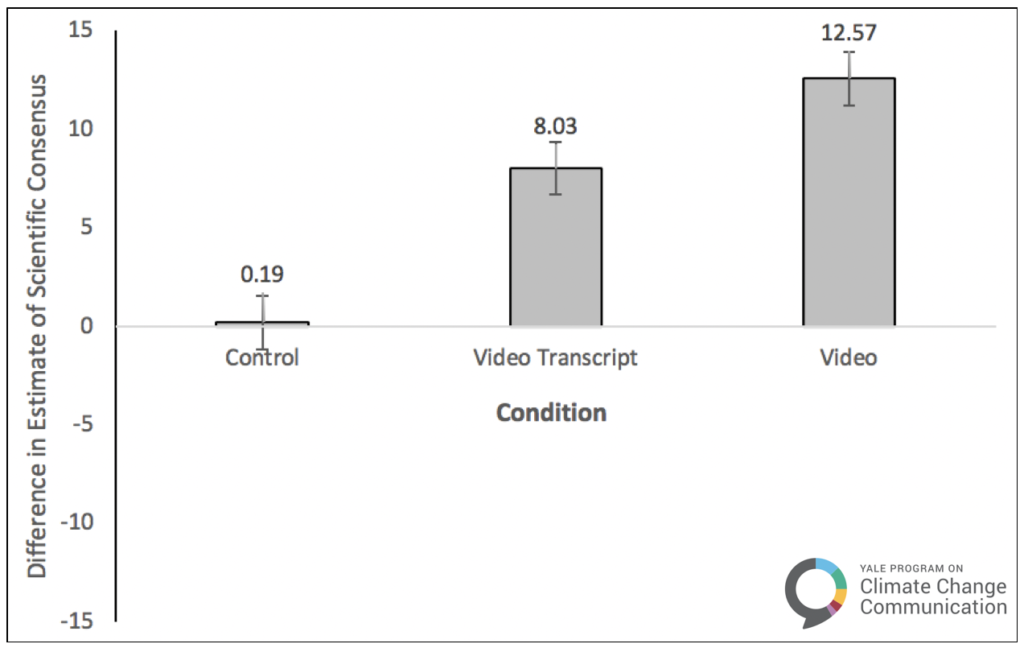Peer-Reviewed Article · Sep 17, 2019
Using video to communicate the scientific consensus on climate change
By Matthew Goldberg, Sander van der Linden, Matthew Ballew, Seth Rosenthal, Abel Gustafson and Anthony Leiserowitz
Filed under: Messaging

We are pleased to announce the publication of a new research article, “The experience of consensus: Video as an effective medium to communicate scientific agreement on climate change” in the journal Science Communication.
Our prior work has found that the scientific consensus on global warming (“97% of climate scientists have concluded that human-caused global warming is happening”) is an effective message. Communicating the scientific consensus promotes the public’s understanding of the consensus itself, and subsequently increases their belief that global warming is happening and human-caused, their level of worry, and support for climate policy. In our new article, we investigate whether using a video that communicates the scientific consensus with analogies and vivid imagery is more effective than a text transcript with identical information. You can watch the video here.
We surveyed a sample of U.S. adults (N = 507) and randomly assigned them to watch a consensus-message video, read a text transcript of the video, or participate in a control condition. We found that both the transcript and the video were effective at increasing perceptions of scientific agreement, but the video was significantly more effective than the transcript.
We also found, consistent with prior research, that communicating the scientific consensus acts as a “gateway belief” with subsequent influences on respondents’ beliefs that global warming is human-caused, worry levels, and rating of global warming as a priority issue for the President and Congress.
The results of this experiment highlight the effectiveness of video in communicating important information such as the scientific consensus on climate change. Additionally, by showing that the video was more effective than a text transcript that presented identical information, this research indicates the value of including vivid imagery in science communication.
The full article is available here to those with a subscription to Science Communication. If you would like to request a copy, please send an email to climatechange@yale.edu, with the subject line: Request Video Consensus Paper.
This project was supported by Fenton Communications, the MacArthur Foundation, and the U.S. Energy Foundation.
